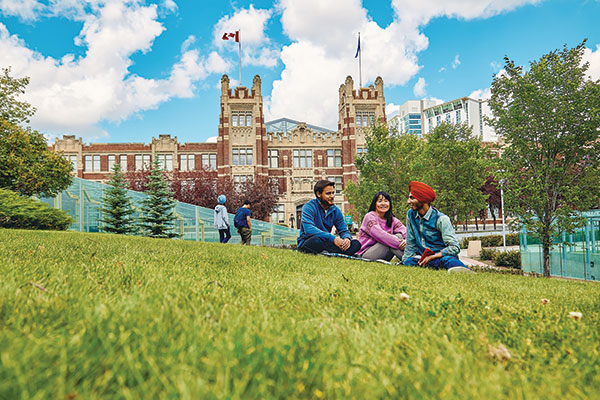As an international student, you must ensure that you have the necessary immigration documents to live and study in Canada.
International Student Advisors can answer your questions and help you understand your rights and responsibilities.
Immigration documents
International students need documents from SAIT to support their application for Canadian visas and permits.
| Letter of Acceptance |
|
| Confirmation of Enrollment Letter |
|
| Letter of Completion |
|
IRCC international student cap: Policy change January 2024
Find more information about Immigration Refugees and Citizenship Canada's (IRCC) latest policy and how it may impact applications for study permits, open work permits and post-graduate work permits (PGWP.)
How this may impact youTravelling outside of Canada
International students should be informed and prepared before they leave Canada and re-enter.
Before leaving Canada and upon returning, international students should have:
- a valid passport
- a valid study permit
- a valid TRV or an eTA (if applicable)
- proof of your student status (e.g., confirmation of enrolment from your mySAIT account)
When you make your travel plan, check your document expiry date and renew them if necessary before you travel.
We recommend not travelling while your immigration application is under processing. If you have to travel while waiting for your study permit extension or your post-graduation work permit, speak to an international student advisor.
When you return to Canada, you may enter as,
- a student if your study permit is still valid.
- a visitor if you have applied for a study permit extension and it is still in process. In this case, you can’t study until you get your extended study permit. The officer at the port of entry may also ask you to prove you have enough money to support yourself in Canada.
- a worker if the IRCC approves your post-graduation work permit while you’re away, or,
- a visitor if the IRCC is still processing your post-graduation work permit.
If you meet all the above requirements, but the Canada Border Services Agency (CBSA) officer believes there is reason to refuse your re-entry, you won’t be able to enter Canada. Only Canadian citizens are guaranteed entry to Canada.
Travelling to the United States
If you plan on visiting the United States, you may need a US Visitor Visa or other visit requirements. If you are in Canada and are applying for a US Visitor Visa, you will need to book an in-person appointment at the nearest US consulate.
Please note the international student advisors at SAIT do not provide advice on US immigration issues. All inquiries should be directed to the US Consulate General in Calgary.
If you hold a valid temporary resident status, such as a study permit, and you have only visited the US after leaving Canada, you do not need a valid TRV (Temporary Resident Visa) to re-enter Canada.
Contact us
International Centre
AA206, Heritage Hall, SAIT Main Campus
-
Phone - 1.403.284.8852
-
Email - international@sait.ca
-
Monday - Friday | 8 am - 4:30 pm
International

Oki, Âba wathtech, Danit'ada, Tawnshi, Hello.
SAIT is located on the traditional territories of the Niitsitapi (Blackfoot) and the people of Treaty 7 which includes the Siksika, the Piikani, the Kainai, the Tsuut’ina and the Îyârhe Nakoda of Bearspaw, Chiniki and Goodstoney.
We are situated in an area the Blackfoot tribes traditionally called Moh’kinsstis, where the Bow River meets the Elbow River. We now call it the city of Calgary, which is also home to the Métis Nation of Alberta.
